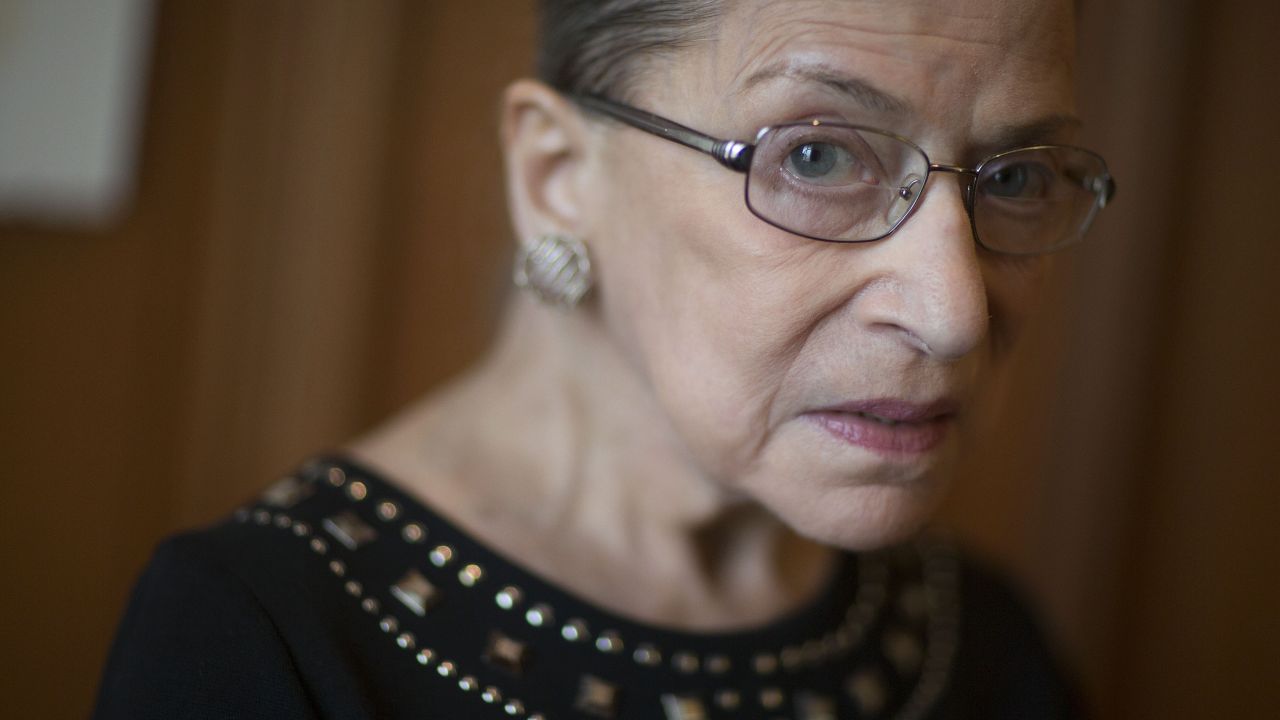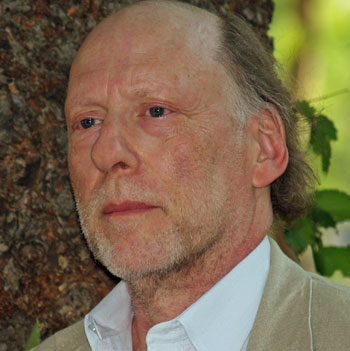
Ruth Bader Ginsburg, associate justice of the US Supreme Court, this week offered both some controversial comments about Republican presidential candidate Donald Trump and an apology for them. (Photo by Andrew Harrer/Bloomberg via Getty Images)
What a week for the separation of powers! Not since December 2000, when a five-member majority of the Rehnquist Supreme Court stopped the Florida vote recount and placed George W. Bush in the White House — on the ground (as stated by the late Justice Scalia) that otherwise, Bush would suffer “irreparable harm” — has it been so crystal-clear that the Supreme Court is a body of men and women, not laws. These men and women durably hold views that go beyond — way beyond — legal citations.
Even Americans who sat out this last week of the campaign in underground caves must know — at least if the caves are wired for cable — that Justice Ruth Bader Ginsburg ignited a multi-alarm fire with her harsh words for Donald Trump. “He is a faker,” she told CNN legal analyst Joan Biskupic. “He has no consistency about him. He says whatever comes into his head at the moment. He really has an ego… How has he gotten away with not turning over his tax returns? The press seems to be very gentle with him on that.”
She also said to Adam Liptak of The New York Times that she “can’t imagine what this place [the court] would be — I can’t imagine what the country would be — with Donald Trump as our president. For the country, it could be four years. For the court, it could be — I don’t even want to contemplate that.”
Unsurprisingly, Trump denounced her with characteristic restraint: “Justice Ginsburg of the US Supreme Court has embarrassed all by making very dumb political statements about me,” he tweeted. “Her mind is shot — resign!”
Down there in the dankness, Americans who burrowed under because the rawness of American politics is probably harmful to their health (at least their mental health), must also know that Ginsburg quickly came under fire not only from Trump and his right-wing allies but from the editorial board of The New York Times, which wrote:
“… just imagine if this were 2000 and the resolution of the election depended on a Supreme Court decision. Could anyone now argue with a straight face that Justice Ginsburg’s only guide would be the law?”
The Washington Post editorial board found Justice Ginsburg’s remarks “inappropriate.” Not that Justice Ginsburg’s disparaging comments were “untrue, at least as we read the evidence,” they wrote. “… However valid her comments may have been, though, and however in keeping with her known political bent, they were still much, much better left unsaid by a member of the Supreme Court.” It was a question, you might say, of constitutional etiquette.
Justice Ginsburg also ran afoul of several thoughtful commentators who emphasized what could be the practical effects of her insertion into the campaign. In The Atlantic, Matt Ford warned that “in any hypothetical 5-4 decision in which Ginsburg sides against a Trump administration, he and his cohorts now have evidence of bad faith from the court that keeps them in check.”
CNN legal analyst Jeffrey Toobin, himself the author of a book called Too Close to Call: The Thirty-Six-Day Battle to Decide the 2000 Election, and a sage hand in legal-political matters, noted that, “At the practical level, Ginsburg will certainly have to recuse herself if any Bush v. Gore-style lawsuit comes before the court during this election season.”
“It’s folly to pretend that judges and justices have no political views, or that their legal views are entirely separate from their judicial philosophies. But there is value in at least formal neutrality in these most partisan battles. Any smart lawyer — or smart citizen — can see that. So, in short order, will Ginsburg.”
Astute Toobin was. The short order was very short. On Thursday, July 13, Justice Ginsburg issued this statement:
On reflection, my recent remarks in response to press inquiries were ill-advised and I regret making them. Judges should avoid commenting on a candidate for public office. In the future I will be more circumspect.
But however “ill-advised” or regrettable her remarks — and please note, she did not say they were false — we ought not rush away from this moment of truth before considering what is at stake here. For Justice Ginsburg’s “inappropriateness” is a clarifying gift.
Received opinion holds that American law is free of political judgment, and that the courts deserve respect because they are guarantors of that freedom. Bush v. Gore should have exploded that view, but it staggers on, a zombie of conventional wisdom. Even as the Roberts court has secured the power of money in American elections and squeezed the Voting Rights Act to the breaking point, we are supposed to genuflect before the nonsensical view that the language of the law, speaking virginally, rears up on its objective feet and makes such decisions all by itself.
No serious person can argue that, in December 2000, the law was all that guided a five-judge majority, all appointed by Republican presidents, to stop the Florida recount cold and boost George W. Bush into the White House.
Bush v. Gore was the culminating decision in a chain of actions that resulted in something as close to a coup d’etat as this country has ever experienced. Its consequences were vast — and, it must be said, irreparable — starting with Bush’s failure to take seriously the Aug. 6, 2001 intelligence report on Osama bin Laden’s “determination” to strike in the United States, and continuing into the catastrophic Iraq war in 2003. The court’s legal reasoning in that case was threadbare. It rendered a political judgment on political grounds, and, being the Supreme Court, could make it stick.
That was a crime against democracy. If Justice Ginsburg is guilty of anything, it’s a series of unwise gaffes that add up, perhaps, to a blunder. That much she has conceded. But she has also compelled us to look through the screen of pretense that hides the realities of power.
By indecorously poking a stick through the Supreme Court’s façade, Ruth Bader Ginsburg implores us to awaken from self-imposed anesthesia. For this she deserves our thanks.




